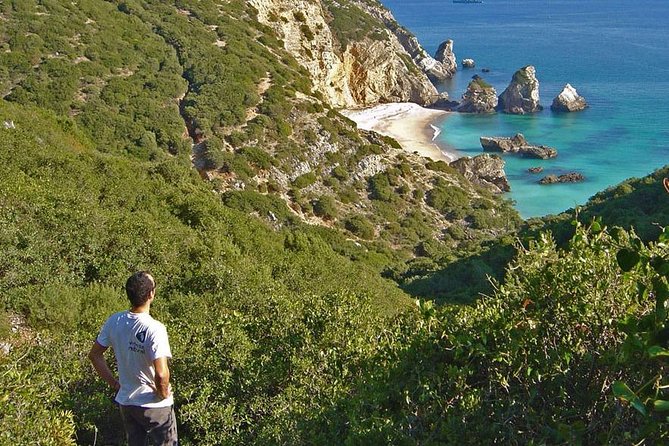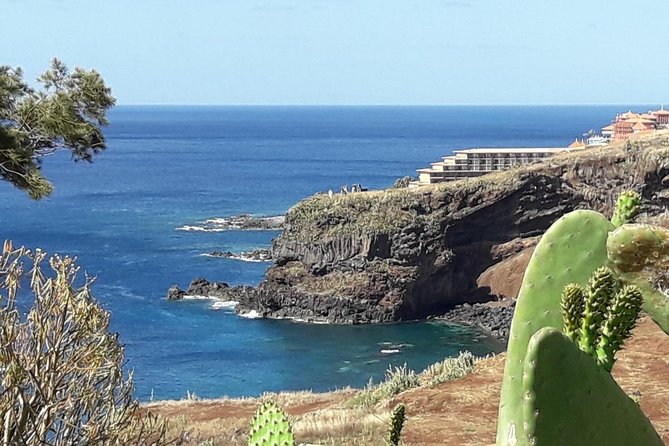Sustainable eco-tourism is a rapidly growing trend that’s capturing the attention of conscious travelers around the world. By prioritizing environmentally-friendly practices and cultural preservation, this approach to travel not only minimizes one’s carbon footprint, but also fosters meaningful connections with local communities. From eco-friendly transportation to sustainable dining experiences, the principles of eco-tourism aim to create a symbiotic relationship between visitors and the destinations they explore. With a wealth of innovative solutions and emerging destinations, the future of sustainable travel promises to redefine the way we experience the world.
Key Points
-
Utilizes eco-friendly transportation options like fuel-efficient minivans and electric/hybrid vehicles to reduce emissions and carbon footprint.
-
Showcases sustainable destination highlights, such as historic sites, eco-friendly local businesses, and renewable energy initiatives, to promote responsible tourism.
-
Immerses travelers in the preservation of Lisbon’s rich cultural heritage and traditions through interactions with local artisans and experts.
-
Implements sustainable practices like sourcing local organic ingredients, promoting waste reduction, and partnering with conservation organizations to minimize environmental impact.
-
Adheres to ethical tourism principles, including certified ‘Clean & Safe’ standards, limiting group sizes, and prioritizing customer, staff, and environmental well-being.
Eco-Friendly Transportation Options

The tour makes use of eco-friendly transportation options to minimize its environmental impact. Guests are transported in air-conditioned, fuel-efficient minivans, reducing emissions compared to larger vehicles.
The tour also offers the option of pickup locations throughout the city, allowing participants to avoid driving their own cars and contributing to urban congestion.
Plus, the use of electric or hybrid vehicles is prioritized whenever possible, further lowering the carbon footprint of the tour.
These sustainable transportation choices demonstrate the tour operator’s commitment to promoting environmentally responsible tourism practices.
You can also read our reviews of more tours and experiences in Lisbon.
Sustainable Destination Highlights

A key focus of this sustainable eco-tourism tour is showcasing Lisbon’s vibrant historic sites and cultural landmarks while minimizing environmental impact.
Visitors will explore the city’s iconic attractions like the Jerónimos Monastery, Belém Tower, and Praça do Comércio, all while learning about Lisbon’s rich history and commitment to sustainability.
The tour also highlights:
- Neighborhood walking tours to reduce carbon footprint
- Visits to eco-friendly local businesses and restaurants
- Participation in community-based conservation efforts
- Exposure to renewable energy initiatives across the city
- Opportunities to interact with local experts on sustainable practices
This immersive experience allows travelers to discover Lisbon’s cultural treasures while supporting the city’s sustainable development.
Preserving Local Culture
Preserving Lisbon’s vibrant local culture is a fundamental aspect of this sustainable eco-tourism experience.
Visitors are immersed in the city’s rich heritage, exploring historic neighborhoods, sampling traditional cuisine, and interacting with local artisans. The private tour ensures a personalized encounter, allowing guests to truly connect with the unique character of Lisbon.
Guides share insights into the customs and traditions that have been passed down through generations, fostering a deeper appreciation for the destination.
Reducing Environmental Impact

As a core tenet of this sustainable eco-tourism experience, reducing the environmental impact is paramount.
This tour operator has implemented several measures to minimize their carbon footprint and protect the delicate ecosystem of Lisbon.
Some of these initiatives include:
- Using energy-efficient, low-emission vehicles for transportation
- Sourcing local and organic ingredients for the provided lunch
- Encouraging guests to reduce waste and recycle during the tour
- Partnering with conservation organizations to support ecological projects
- Educating travelers on sustainable practices they can adopt during their stay
Ethical Tourism Practices

Three key ethical tourism practices are central to this sustainable eco-tourism experience. The tour operator is certified by ‘Turismo de Portugal’ with a ‘Clean & Safe’ hygiene stamp, ensuring the highest safety and sanitation standards. On top of that, the private tour format limits group size, minimizing disruption to the local community. Finally, the tour includes gratuities, demonstrating a commitment to supporting the livelihoods of the guides and other staff involved.
| Ethical Practice | Description |
|---|---|
| Hygiene Certification | Certified ‘Clean & Safe’ by tourism authority |
| Private Group Size | Limits impact on local community |
| Gratuities Included | Supports local staff livelihoods |
This eco-tourism experience prioritizes the well-being of customers, staff, and the surrounding environment, embodying the principles of ethical and sustainable travel.
- Lisbon City Center Tour – The Unmissable Lisbon
- Sintra and Cascais Small-Group Day Trip From Lisbon
- Best of Lisbon Small-Group Guided Walking Tour
- True 4Hour/Half Day Tuk Tuk Tour of Lisbon – Local Overview
- Fatima, Nazare and Obidos Small-Group Day Trip From Lisbon
- Lisbon Small-Group Portuguese Food and Wine Tour
Eco-Lodging Accommodations

The tour’s eco-lodging accommodations embody the principles of sustainability. Carefully selected to minimize environmental impact, these lodges prioritize renewable energy, water conservation, and waste reduction.
Guests can expect:
- Locally-sourced, organic cuisine that supports regional producers
- Minimal single-use plastics and eco-friendly bath amenities
- Energy-efficient lighting and smart climate control systems
- Opportunities to participate in conservation efforts or learn about the local ecosystem
- Seamless integration with the natural surroundings, promoting a deeper connection to the destination.
These eco-conscious accommodations ensure that travelers can enjoy an immersive and responsible experience, contributing to the long-term sustainability of the region.
Sustainable Dining Experiences

What makes the dining experiences on this tour truly sustainable? The tour operator has carefully selected local restaurants and eateries that source their ingredients from nearby farms and producers. This minimizes the environmental impact of transportation, supports the local economy, and ensures the freshness and quality of the cuisine.
Meals feature seasonal and organic produce, meat and seafood from ethical, sustainable providers. Vegetarian and vegan options are available, catering to diverse dietary needs.
The tour also promotes a zero-waste policy, with reusable tableware and proper recycling procedures. By immersing travelers in this sustainable food culture, the tour offers an authentic taste of Lisbon’s vibrant culinary scene while positively impacting the environment.
Responsible Wildlife Encounters
Responsible wildlife encounters on this tour prioritize the well-being and preservation of the local flora and fauna. Guided by principles of eco-tourism, the experience encourages respectful observation and education.
Visitors are briefed on appropriate behavior, such as:
- Maintaining a safe distance from wild animals
- Avoiding direct contact or feeding
- Staying on designated trails to minimize disturbance
- Refraining from littering or damaging natural habitats
- Reporting any concerning wildlife activity to the guide
This approach fosters a deeper appreciation for the delicate balance of the ecosystem, while ensuring the tour has a minimal impact on the environment.
The goal is to create a sustainable and enriching wildlife experience for all participants.
Recap
Eco-tourism offers a balanced approach to travel, prioritizing environmental conservation and cultural preservation. By embracing eco-friendly transportation, sustainable accommodations, and responsible activities, travelers can minimize their carbon footprint while seeing authentic local experiences. This form of tourism empowers communities, supports conservation efforts, and ensures that natural wonders are protected for future generations to enjoy.
More Tour Reviews in Lisbon
Not for you? Here's more things to do in Lisbon we have recnetly reviewed
- 8 Best Canoe And Kayak Experiences In Lisbon
- 2 Best Craft Beer Tours And Tastings In Lisbon
- 12 Best 2 Day Tours In Lisbon
- 9 Best 3 Day Tours In Lisbon
- 25 Best Cruises And Boat Tours In Lisbon
- 16 Best Canoe And Kayak Experiences In Lisbon
- 6 Best Christmas Experiences In Lisbon
- 25 Best Dining Experiences In Lisbon
- 20 Best Full-Day Tours In Lisbon
- 11 Best Helicopter Flights And Tours In Lisbon
- 3 Best 4 Day Tours In Lisbon
- 14 Best Massage And Relaxation Services In Lisbon
